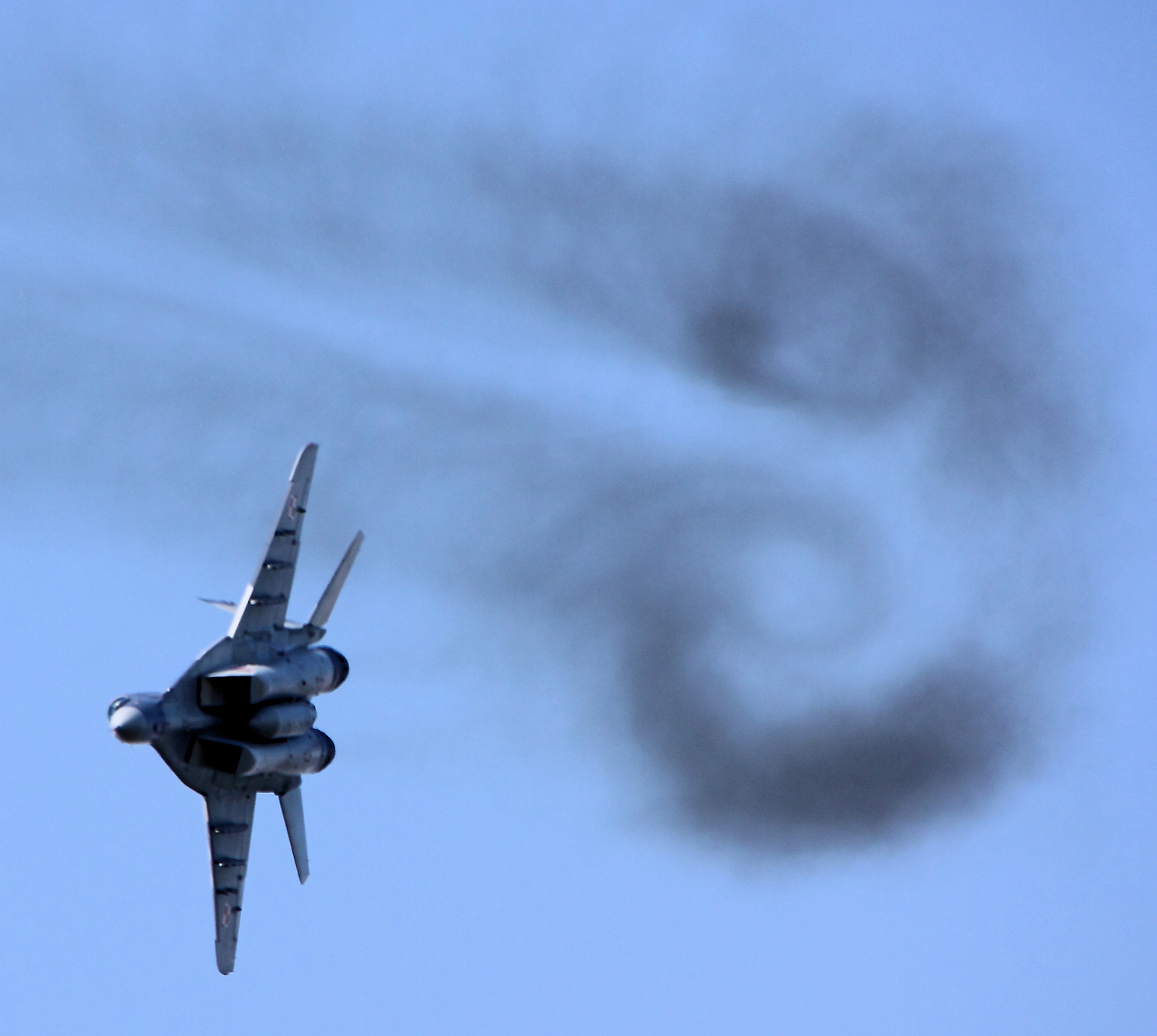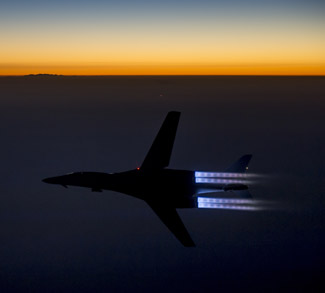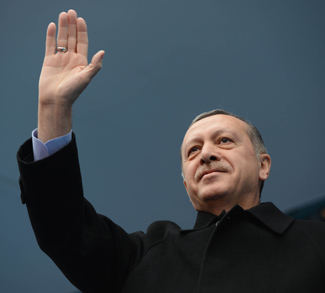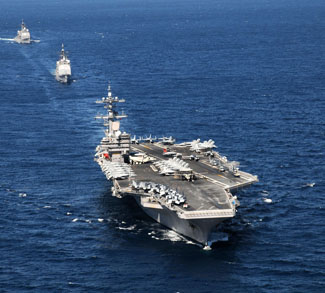So what does Russia’s entry into the Syrian sweepstakes mean?
Firstly, it means that the Assad regime has been handed a critical lifeline as it deals with increasingly regular losses of territory, men, and weapons across the country. Russia has its own interests in Syria too, as it has a naval supply base in Tartus, in Latakia province on Syria’s Mediterranean coast, which it wants to protect at any cost.
Secondly, it means that now Russia is part of the solution and not part of the problem in Syria. President Vladimir Putin has moved very fast and in doing so, has outwitted President Obama and his European partners. Russia announced that it was intervening in Syria at the request of the Syrian government, but that was a foregone conclusion once Russian troops and weaponry started arriving in Syria, even though initially Russia declared they were there only for “training purposes.”
Thirdly, it means that the United States and its coalition partners have no option but to deal with Russia in order to find out a solution to the Syrian imbroglio. They also have to coordinate with Russia in order to ensure that Russian pilots and the pilots from other countries bombing ISIS in Syria and Iraq do not get in each other’s way, which could lead to dangerous consequences.
Fourthly, domestically, President Putin may want to divert attention from other problems, as the Russian economy is not doing well, especially in light of Western sanctions over its involvement in Crimea and decreasing global oil prices. There have been reports that Moscow has sent some of the same troops to Syria which were originally involved in the annexation of Crimea. This would mean that Russian involvement in Syria is proceeding according to a definite game-plan.
However, there are quite a few risks for Russia too.
If Russia gets enmeshed in the Syrian conflict, it may be difficult for it to extricate itself out of the situation. As mentioned earlier, Moscow’s intervention in Ukraine has actually done a lot of damage to its economy and this intervention in Syria could deal an even stronger blow to the Russian economy.
If Russian pilots were to be shot down and captured by ISIS or other groups, it would create a very complicated situation for President Putin and would bring lower his popularity levels among domestic audiences. Russia also risks alienating Sunni Arab countries, many of which see the current Syrian President Bashar Al-Assad as the main problem in Syria and have been aiding and abetting anti-Assad groups.
In addition, Russia has already faced Islamist radicalism in the past, especially on its southern fringe. The Beslan school massacre, the Moscow theatre siege are still not-too-distant memories and many Russians could also be fighting for ISIS and other anti-Assad terror groups. In case they return to strike within Russia, it would come at a terrible price for President Putin.
The United States has been training and funding moderate rebels and as reports indicate, Moscow has also targeted some of these groups through its airstrikes. This could lead to a backlash against Russia among the moderate elements of the Syrian resistance. Moscow would do well to remember that in Afghanistan, it was mainly an alliance of the U.S., Saudi Arabia and Pakistan, which joined forces to defeat the then Soviet Union. The defeat in Afghanistan greatly strained the Soviet state and was one of the factors which led to its ultimate dissolution. Russia has also been accused of violating Turkish airspace and Ankara has summoned the Russian ambassador in this regard. This could mean a dangerous escalation of the crisis.
It is still early days yet, but by intervening in Syria, President Putin may have bitten off more than he can chew. We will have to wait and watch.
The opinions, beliefs, and viewpoints expressed by the authors are theirs alone and don’t reflect any official position of Geopoliticalmonitor.com.




